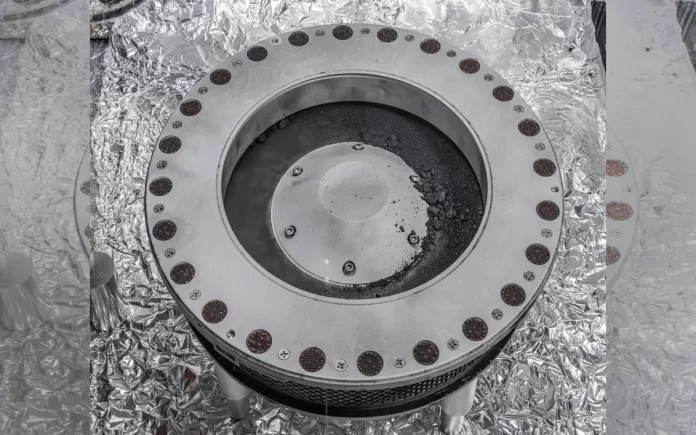New York: NASA scientists, delving into the material retrieved from the Bennu asteroid, have unveiled a remarkable revelation: the substance within the asteroid hails from an ancient ocean world.
As reported by Turkish Trt Haber, this inference stems from the identification of phosphate crust found on the asteroid’s surface.
This phosphate mineral, abundant in calcium and magnesium, presents a novel discovery, unseen in meteorites—small celestial bodies that traverse Earth’s atmosphere from space.
The chemical composition of this mineral bears striking resemblances to the rocks found beneath the icy surface of Saturn’s moon, Enceladus.
Notably, phosphate serves as a fundamental element for life’s building blocks.
Scientists speculate that Bennu, in its earlier existence, likely bore similarities to Enceladus but was approximately half its size.
Given the rarity of opportunities to study samples from asteroids, these findings stand as a thrilling advancement for scientific exploration.
The OSIRIS-REx mission marks the third instance in history where mankind has successfully retrieved and brought back pieces from an asteroid to Earth.
The round trip journey for the Bennu sample spanned seven years, traversing a staggering distance of 6.21 billion kilometers (3.86 billion miles).
The safe return of the sample capsule in September 2023 marks a significant milestone in our understanding of celestial bodies and their potential ties to the origins of life.



